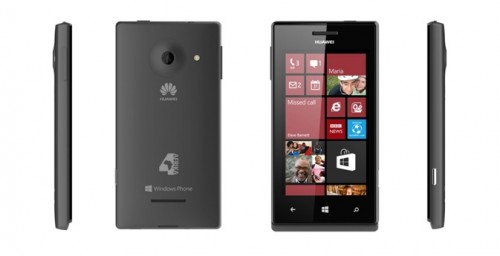Huawei going strong in Africa
The United States may fear Huawei’s telecommunications technology, but most countries are much less wary. In fact, motivated by aggressive pricing, nearly every African country has partnered with the Chinese company in some form. Usually, that means either smartphone distribution or network infrastructure deployment.
And there are no signs Huawei is letting up. The company is known for (successfully) competing with BlackBerry and Nokia for smartphone market share in Africa. Hundreds of thousands of Huawei phones have been sold in Kenya alone and the market share there is now around 50%. Huawei expects revenue in southern and eastern Africa to climb as high as 30% in the next 2 1/2 years. Total sales from Africa account for nearly one-seventh of global revenue. In 2012, rapid growth experienced in Europe, the Middle East, and Africa (EMEA) contributed record regional sales revenue of US $12.42 billion, an increase of 6.1 percent year-on-year.
Within the past year, Huawei has been in the news for a variety of African market triumphs, some minor, but all notable:
- opened a call center in South Africa
- partnership with Microsoft 4Afrika initiative to offer Windows 8 smartphone in key markets markets
- an unlocked Ideos smartphone became available in Kenya for under $50
- rolled out taxi Wi-Fi with 8ta in South Africa
- secured a tender to build a national fibre network project in Kenya
- selected by Telkom South Africa to deploy a 100 Mbit/s broadband network
- chosen to deploy LTE backhaul networks in Angola and Namibia
Ostensibly due to the brand’s success with consumers, Huawei has become more interested in supplying equipment to governments and companies. To date, Huawei has also helped 18 African governments build e-government networks in places like Nigeria, Kenya, Uganda, Senegal, Angola, Guinea, and Djibouti.
There’s no proof Huawei has motives to undermine governments using their technology, but the speculation will no doubt rage on for years.
Perhaps the more pressing concern should be Huawei’s lack of human rights policy and the company’s history of using predominantly foreign workers to complete jobs in Africa (they now claim 60% of Huawei employees in Africa are African but subcontractors are less so). In addition, the company has a history of acting in the name of profit over morality. It was Huawei, one of the original contractors for Libyana’s (Libya) cellular network backbone, that refused to sell equipment for a rebel communications project in 2011. No reason was ever given for the decision.
___
For reference, notable customers relying on Huawei equipment include:
North Africa:
- Algeria Telecom (Algeria)
- Orascom, Vodafone, Etisalat Misr, Mobinil (Egypt)
- Libyana (Libya)
- Maroc Telecom Group (Morocco)
- Orange Divona (Tunisia)
Southern Africa:
- Vodacom, Telkom, MTN, Neotel, Cell C (South Africa)
- Unitel, Movicel, MSTelcom, Angola Telecom (Angola)
- MTC (Namibia)
East Africa:
- Safaricom, Orange/Telkom Kenya, Essar, CCK, Kenyan government
- Airtel
West Africa:
- Starcomms (Benin)
- Etisalat (Burkina Faso)
- MTN Côte d’Ivoire, Etisalat (Côte d’Ivoire)
- MTN Ghana (Ghana)
- Lonestar Cell (Liberia)
- MTN Nigeria, Glo Mobile, Starcomms, Multi-Links (Nigeria)
Central Africa
- Camtel, MTN Cameroon (Cameroon)
- Etisalat (Central African Republic)













 Twitter
Twitter Facebook
Facebook Pinterest
Pinterest